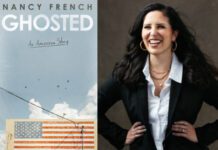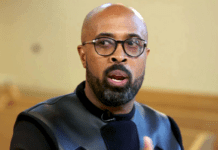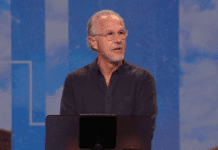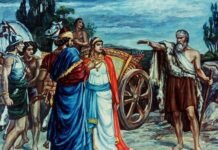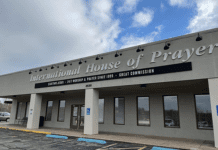According to Newhouse, prominent QAnon influencer “GhostEzra” began sending explicit Christian identity messages to his 300,000 Telegram subscribers after the Capitol attack. Christian Aryan memes, as well as references to the “two-seedline theory” — which contends the serpent in the Book of Genesis mated with Eve, creating two morally opposed races — began popping up in QAnon and Proud Boys channels.
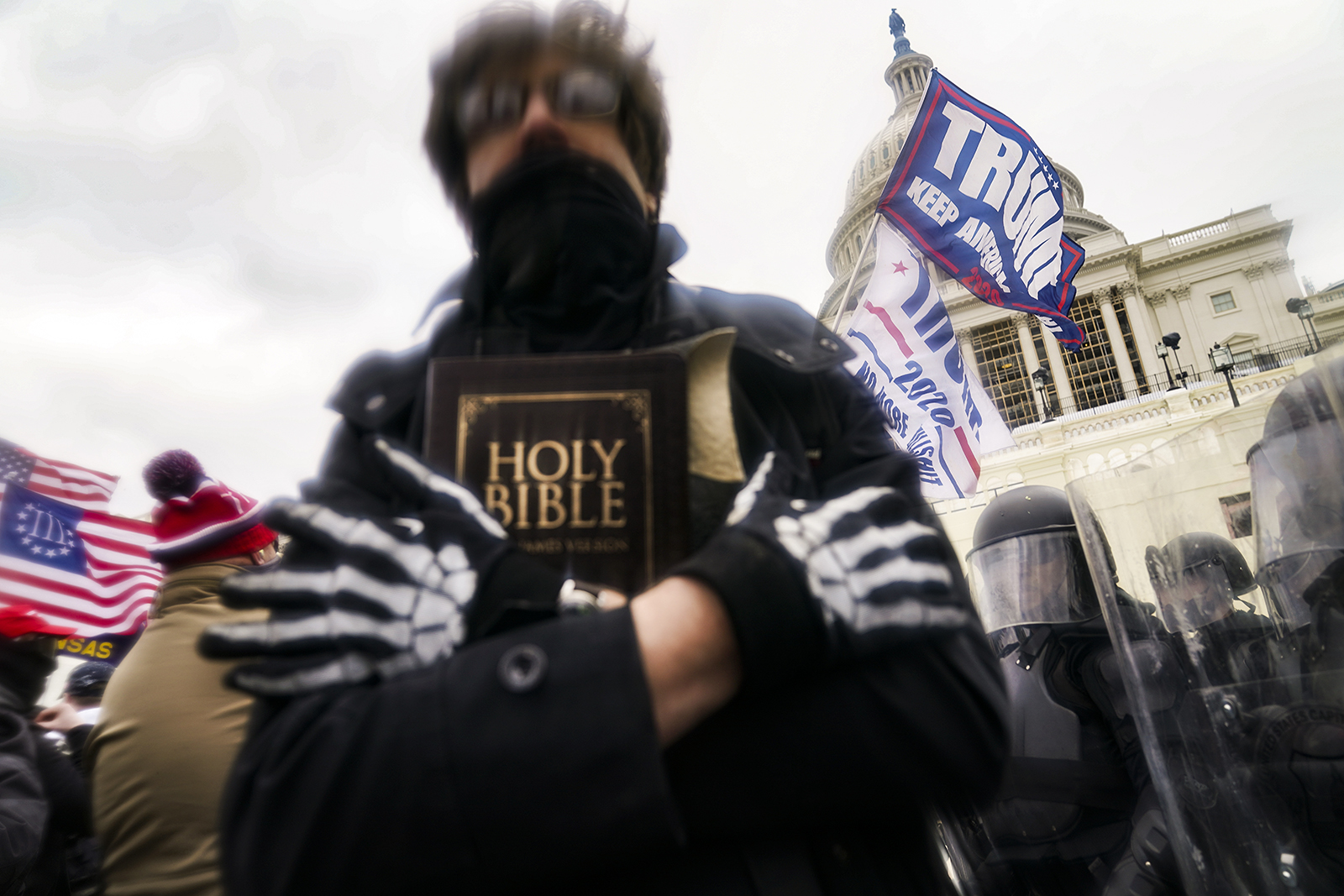
A demonstrator carries a Bible outside the Capitol on Jan. 6, 2021, in Washington. (AP Photo/John Minchillo)
Newhouse also pointed to Kyle Chapman, who leads a sub-group connected to the Proud Boys known as the Fraternal Order of Alt-Knights. Newhouse said Chapman has been “blasting out Christian Identity propaganda” and interacting with Christian Identity influencers on Telegram, a social media website increasingly popular with the right.
“There’s this gradual move toward a more revolutionary, burn-it-all-down posture, and I think Christian Identity for a lot of these people has become a way for them to organize their thoughts,” he said.
The growth in Christian nationalism has translated into threats against the Jewish community. A recent study conducted by George Washington University’s Program on Extremism revealed a December 2021 Telegram post from St. Louis Proud Boys President Mike Lasater that read, “Our time is not up; it is the jewish hegemony whose days our (sic) numbered. This is a Christian nation; jews may be citizens of this country, but they are guests of our nation, and they should remember that.”
Experts stress that Christian nationalism is not always synonymous with Christian Identity — a point made by some conservative Christians who want to differentiate their belief that the United States is a Christian nation from the Jan. 6 insurrectionists’.
But Baker argued that even relatively moderate Christian nationalism can encourage violent groups. “A number of celebrity pastors who are involved in white Christian nationalism have tried to separate themselves from the violence,” she said, “but are not realizing they are part of the pipeline.”
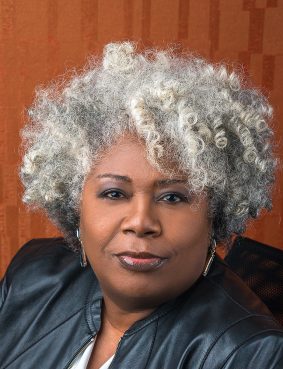
Anthea Butler. Courtesy photo
Any appeal to Christian nationalist views, said Anthea Butler, chair of the department of religious studies at the University of Pennsylvania, can embolden extremists by giving the appearance — even unintentionally — of an “alliance” with church leaders.
Butler pointed to a November speech by U.S. Conference of Catholic Bishops President Archbishop José Gomez. The prelate, who has condemned racism and the insurrection, warned that America has lost its “story” — namely, one “rooted in a biblical worldview and the values of our Judeo-Christian heritage” that “underwrote America’s founding documents.”
Newhouse said there are signs that Christian nationalism’s rise is already pushing the “already radicalized” toward a “more violent posture.”
Andrew Torba, a conservative tech entrepreneur, has been venting what Newhouse described as an “extreme anti-modern version of Christian nationalism” on Gab, the alternative social media website Torba founded.
Torba’s vision for a “parallel Christian society” has crossover appeal to “accelerationist authors” — people who hope to bring on the End Times by, among other things, provoking a race war, according to Newhouse.


